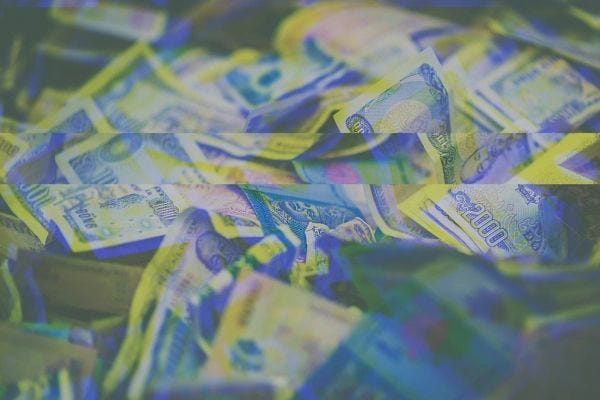What's the future of credit scores?
Futera covers the future of culture, society, jobs, and just about everything else to help spark your next big idea and make our future world a better place.
Covid is causing layoffs and... better credit scores?
A surprising trend occurred when millions of people lost their jobs to COVID: Americans who are unemployed skipped their payments but credit FICO scores got better.
What is a FICO credit score?
A FICO credit score is the method of evaluating a person’s credit, ranging from 300 to 850 based on a variety of financial factors. Anyone with a score from 670~739 has a "good" credit score.
The Fair Isaac Corporation (FICO) produces the most widely used consumer credit scores that banks and other financial institutions use to decide whether or not to lend money or issue credit. The scores are based on a person’s payment history, current level of indebtedness, types of credit used, length of credit history, and new credit accounts.
A surprising trend occurred when millions of people lost their jobs to COVID: Americans who are unemployed skipped their payments but credit FICO scores got better.
How are credit scores doing now?
One would assume credit scores would have plummeted at the onset of the pandemic due to millions of people losing their jobs. But the opposite has happened with a significant rise in credit scores thanks to the financial assistance government has provided to people without jobs.
With the stimulus and government checks coming in, people have been able to stay on top of their bills and pay off their debt. This is great news for people who have been carrying heavy debt and it keeps the economy going with increased spending and security. But don’t get too excited, because banks are motivated by debt. The increase in credit scores make it difficult for lenders to know their risk in providing credit and loans.
Cash flow may soon be king for credit scores.
Even before the pandemic started, lenders companies have been making adjustments to how they work to keep from approving loan applicants who don’t have jobs or are running out of money and/or loan assistance.
According to the biggest banks, they’re looking to assess real-time income or cash flow to more accurately score their credit. For people who may be unemployed or have an inconsistent cash flow, that could be bad news for credit.
Similar to post-recession in 2008, people who don’t use their credit cards at all are very risky. Banks are trimming credit lines and even closing accounts that aren’t being used, as they’re worried people will turn to them once their cash flow runs out if they’re unemployed.
American’s are still prioritizing paying off debt.
Even so, Americans want to get rid of their debt. The federal reserve surveyed 1,000+ Americans, who reportedly used almost half of their stimulus checks to payoff debt or beef up their savings.
Even so, don’t get too comfortable with your credit score. It may change in the near future.
Please consider subscribing to my newsletter to get trends on the future every day:




